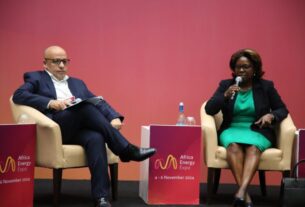On December 19, 2024, the International Organization Against Corruption and Injustice, Rwanda’s branch, translucency International Rwanda( TI- Rwanda), published an analysis of the morning of open government procurement, which shows that in the morning of public procurement There are also loopholes in the government that are brought by some who want to get involved and therefore buy or use other illegal means to win these requests.
The report on the analysis of the exploration conducted by the International Organization Against Corruption and Injustice, translucency International Rwanda showed that there are still some corruption gaps in the morning of public procurement due to the fact that some do n’t have complete information in the force of tenders so Rwandans are encouraged to know because they’re the target followership.

The Administrative Director of the International Organization Against Corruption and Injustice TI- Rwanda, Mupiganyi Apollinaire, expressed the need for translucency in public procurement.
He said” there is a need to abolish the system of working in the government and be transparent.However, it should be given without detention because the budget they use is the budget of our country which is the same budget that you shared in, If someone wants some information.
Again, this report shows the broad lines of how the obstacles are still visible. In the morning of open public procurement, it was decided that everyone should share in the system of public procurement.
He added,” While Rwanda has prioritized the program of working transparently in the morning of open public procurement, there are still obstacles, including corruption gaps, and the actuality of some information that is n’t seen by everyone, which continues to hamper the morning of Government requests are open to everyone.”

The Executive Director of the International Organization Against Corruption and Injustice in TI-Rwanda, Mupiganyi Apollinaire.Mupiganyi asked the government that in this program to accelerate the development of the people NST2, sweats should be made to give a voice to the media, mates includingnon-governmental associations, and the public in general to get enough information on the morning of the request so that they can work together to close the gaps that still live.
He said,” The winners of the tenders should be bared, the information should be made available in an acceptable manner because the tenders are open.”
In Rwanda, public procurement generally consumes over 52 of the country’s budget. These finances are used for procurement and other effects related to the medication of public procurement.
The director of the Public Procurement System( Umucyo), which is under the public Public Procurement Agency( RPPA), Francine Gatarayiha said that since the establishment of this system, it has yielded results indeed though there are still gaps in the morning of public procurement.
She said “ The system works in a legal way, we can give some information without detention, for illustration, companies that are listed in the public requests. A person who owns a certain company should n’t go to the request offered by the company he works in, the system lies and only prevents him.

According to the report, 71 of repliers view Rwanda’s public procurement, as transparent, reflecting a generally positive perception of the system. still, walls similar as corruption, shy digital structure, and confined access to procurement information persist, hindering full translucency.
While 55.56 of repliers identify translucency across all procurement stages, mindfulness of critical aspects like public access to data and responsibility remains also limited.
Repliers astronomically fete the part of open constricting in fostering translucency and responsibility, with over 94 admitting its significance in icing integrity in public procurement.
nearly 89 of repliers report having direct experience in procurement processes, emphasizing the applicability of their perspectives on perpetration challenges and benefits.
translucency International Rwanda remains married to promoting translucency, responsibility, and inclusivity in public procurement and calls on all stakeholders to take decisive action to address the challenges linked in this report.




